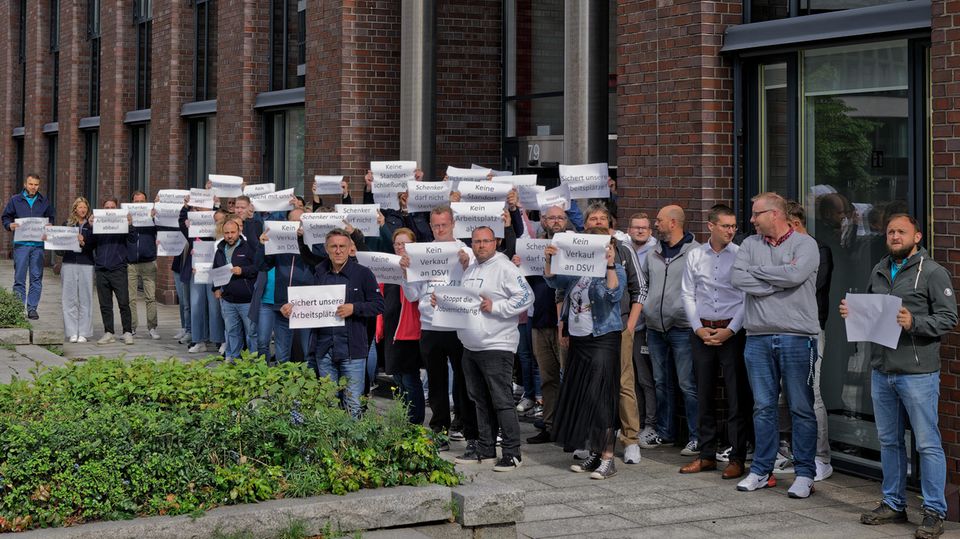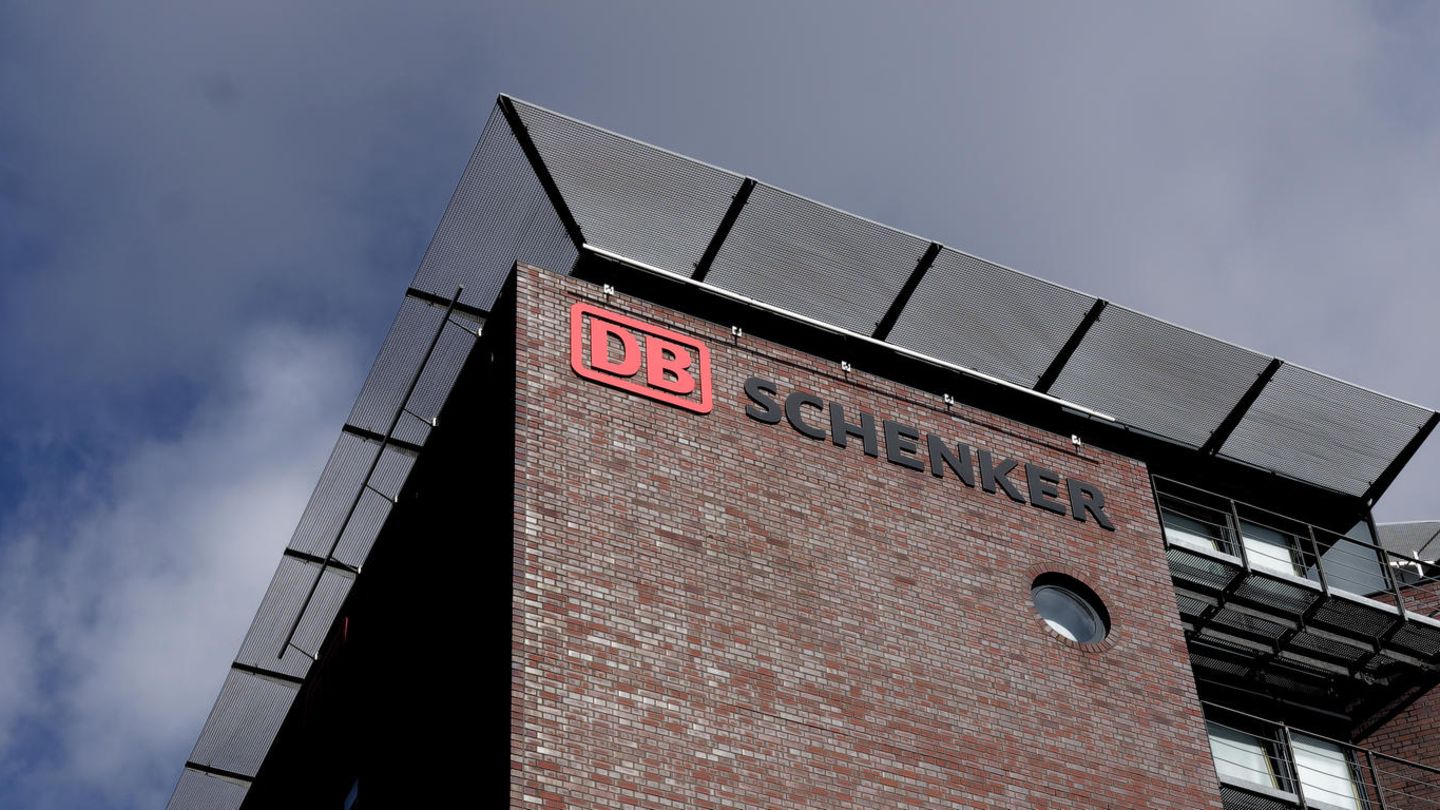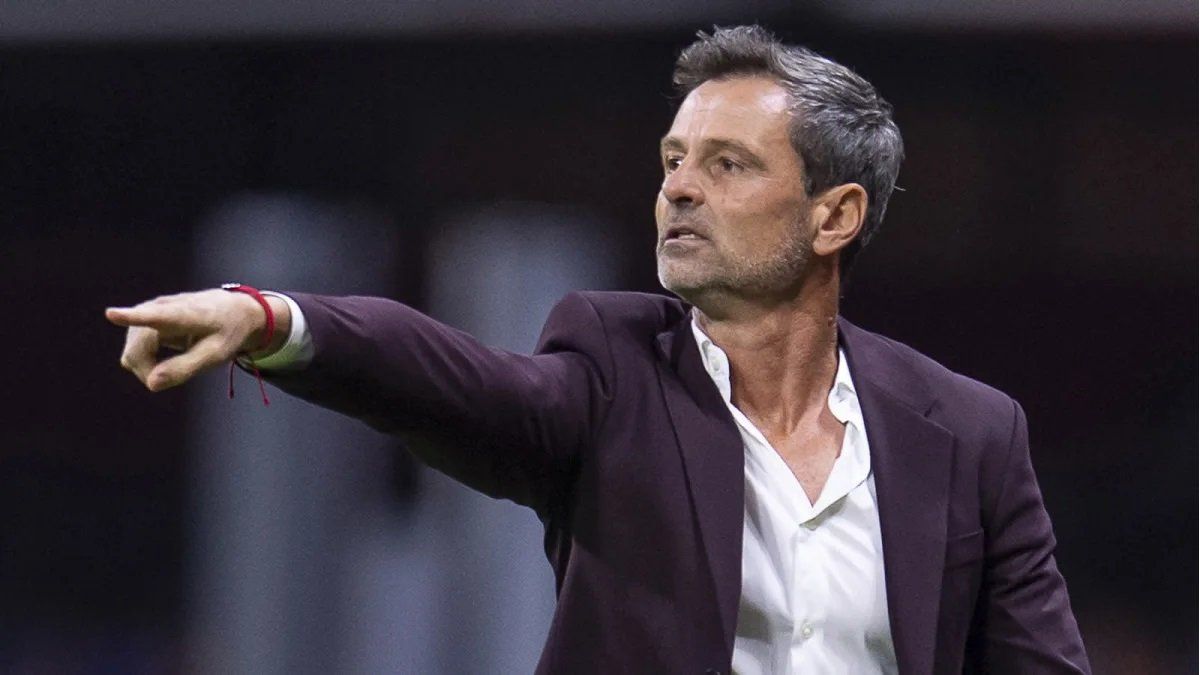Is the Danish freight forwarder DSV buying the railway-owned Schenker AG? Employees fear for 5,300 jobs in Germany and are protesting. But Deutsche Bahn will sell.
High noon on Heidenkampsweg, the B75: At 12 noon sharp, more than 70 employees have gathered in front of the portal of the Hamburg branch of the railway subsidiary Schenker AG on the major arterial road to the south. They are holding up protest signs in the face of the heavy traffic – including a truck with a Schenker container. They are against a possible, indeed probable, sale of their company to the Danish competitor DSV. Like Schenker itself, DSV is one of the largest logistics companies in the world. DSV, according to employee and union circles, will soon be cutting numerous jobs, merging and rationalizing its businesses. 5,300 jobs could be lost in this country, more than a third of the workforce.
Time is running out – in fact, just like at high noon, the big showdown in the bidding process for the federal government’s urgently desired separation of the heavily indebted state railway from its only profitable business unit, Schenker, is rapidly approaching. The die could be cast within days.
As paradoxical as it may sound, Deutsche Bahn is too poor to make a profit. The books show 33 billion euros in debt, five billion more than in 2019. Rising interest rates are escalating the crisis. A debt brake, elevated to a constitutional norm because it was in keeping with the spirit of the times, is not without influence. Simply put, the 14 billion euros in sales proceeds are needed, which is what the bids of the two remaining bidders, CVC, a private equity company, and DSV, are said to amount to. Very urgently, in fact.
Is Schenker a victim of his own success?
Those protesting here in Hamburg and at the other headquarters of Schenker AG, which is run from Essen, are aware of the situation. But – and this also seems paradoxical if you have an image of the conservative, stubborn trade unionist in mind – they are mostly not against a sale per se. No one expects that the ailing railway, which nobody really likes anymore anyway and which is regularly the subject of laconic jokes even among train drivers, would invest sustainably in the profitable logistics champion – at the same time, it is in danger precisely because it is successful, and therefore valuable.
So the worries are big, very big.

One of Schenker’s employees, a specialist in complex business who has been involved for a long time, has just written this to the Chancellor – and not just to him, but also to Transport Minister Wissing, Economics Minister Habeck and railway boss Richard Lutz. He emphasizes that “it is not Schenker that is the problem, but the failures of the federal governments’ infrastructure policy in recent decades and the mismanagement that has been going on at Deutsche Bahn for years.” He argues that DSV has acted harshly and to the detriment of its workforce in precedent-setting cases: In August 2019, for example, the Danes took over the Swiss logistics company Panalpina, which was followed by job cuts across the entire company and the management was replaced. In May 2020, the Panalpina logo disappeared from the former headquarters in Basel, and the traditional brand is now just history.
The majority of Schenkerians apparently no longer expect fairness – after all, they have consistently delivered the best economic performance within the DB Group. But they are now boldly demanding it, especially from politicians: “Particularly against the background that the federal government is currently subsidizing chip production in Germany with ten billion euros – with around 10,000 new jobs, each job is subsidized with one million euros – we find it difficult to understand and accept that the Schenker sale is now about the very last euro and that they seem prepared to lay off a very large number of employees into unemployment after the two-year employment guarantee has expired.”
Deutsche Bahn and politicians need every euro
The very last euro – this refers to the political preference for the bidder DSV that is to be expected according to insider information, and which also seems to be assumed by its competitor CVC. The latter has also made a protest to higher authorities – its own bid was better and more flexible, but not adequately appreciated, they wrote to Berlin. And this mixture has led to the latest and perhaps most astonishing paradox: Verdi, the leading union at Schenker, is for CVC, the financial investor – in other words for a business model that is traditionally viewed with suspicion in Germany, if not even reviled as a locust business. They are aware that the investor CVC will aim for a quick IPO for Schenker and that something like this usually goes hand in hand with profit maximization programs – but they are very sure that in this case it is the lesser evil.
“High Noon” was released in cinemas in 1952. Schenker was already 80 years old at the time and had been owned by the railway since 1931. In 1991, the German Federal Railway sold Schenker for the first time – to Stinnes AG. The company was then swallowed up completely a decade later – and Schenker has belonged to Deutsche Bahn ever since. The famous title song of High Noon begins with the line: “Do not forsake me, oh my darlin'”.
(Transparency note: Capital.de, like stern, belongs to RTL Deutschland.)
Source: Stern




